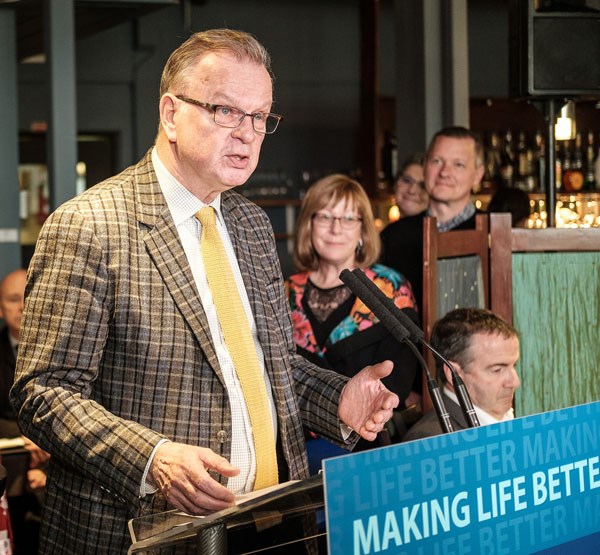The province has officially launched its new Provincial Nominee Program (PNP) Entrepreneur Immigration Regional Pilot.
The program, which will include the Sunshine Coast, is designed to attract entrepreneurs from around the world to establish businesses in regional communities.
“Due to an aging workforce and a preference for city living, some smaller towns can face challenges growing their local economies,” Jobs, Trade and Technology Minister Bruce Ralston said at a March 14 event in Courtenay. “This pilot will attract new businesses that create jobs and spread investment around the province so more British Columbians can benefit from shared prosperity.”
According to the ministry, the PNP is the province’s only “direct economic immigration tool” to attract experienced entrepreneurs and high-demand foreign workers.
“When we get new people, fresh energy, diverse skills we all benefit and grow together,” Ralston said. “This pilot is now open to interested foreign entrepreneur applicants. [It] has tremendous potential to help grow and help local economies remain vibrant. The feedback from the interested communities has been very positive.”
Local governments on the Sunshine Coast have been preparing to be part of the pilot project for some time and have given the Sunshine Coast Regional Economic Development Agency (SCREDO) the lead.
Speaking about the initiative last month, Sunshine Coast Regional District (SCRD) chair Lori Pratt said the new pilot project is different from past initiatives under the Provincial Nominee Program (PNP), in large part because of the requirement that an immigrant investor will need a referral from a community.
“The way they’re rolling it out now is that any of the people who are involved in the program have to have a business plan, they must have visited the community they are moving to first, and the business plan actually has to be signed off on by the community.”
Pratt said reviewing the business plans of potential immigrant investors is where SCREDO comes in.
According to the community profiles posted by the province following the March 14 announcement, Sechelt has identified “support activities for agriculture and forestry, construction of buildings and specialty trade contractors” as priority sectors. The list for Gibsons includes miscellaneous manufacturing, professional, scientific and technical services, and educational services.
For the rural areas of the SCRD the priority sectors are wood product manufacturing, nursing and residential care facilities, and “amusement [and] recreation industries.”
SCREDO has budgeted $2,000 so far to working on the immigrant investor program and in its latest progress report it said it hoped to start meeting with potential applicants and make its first referrals in the second or third quarters of this year.



